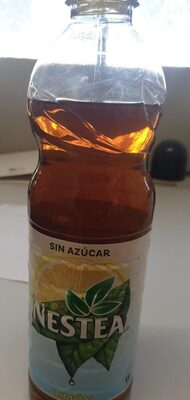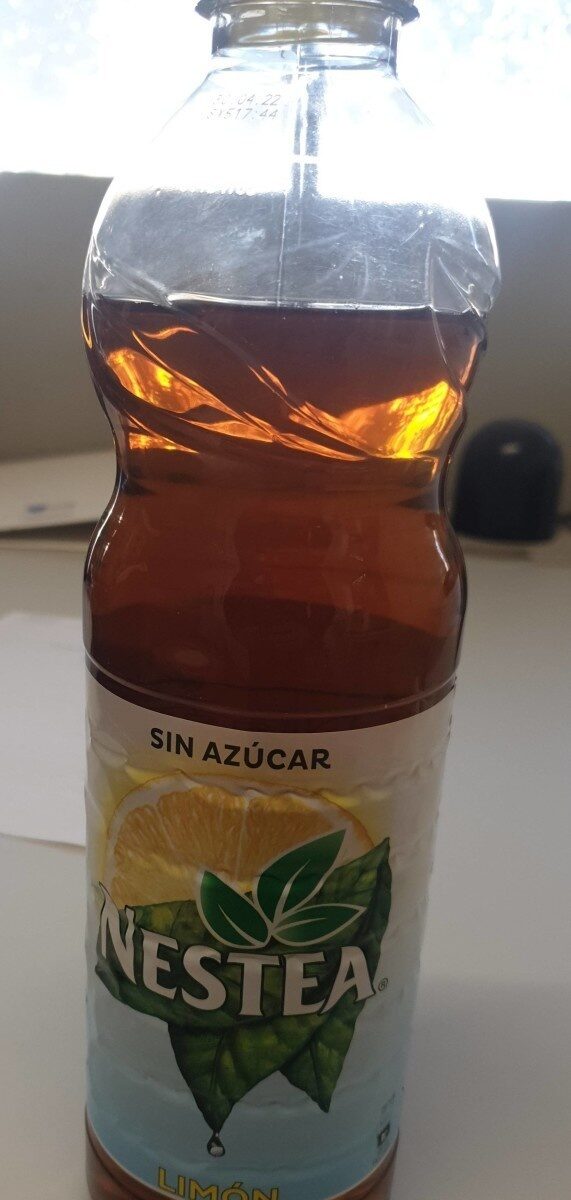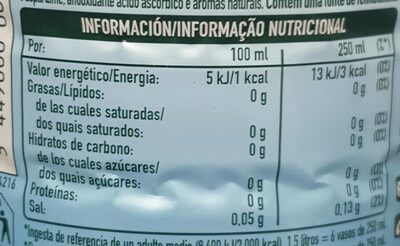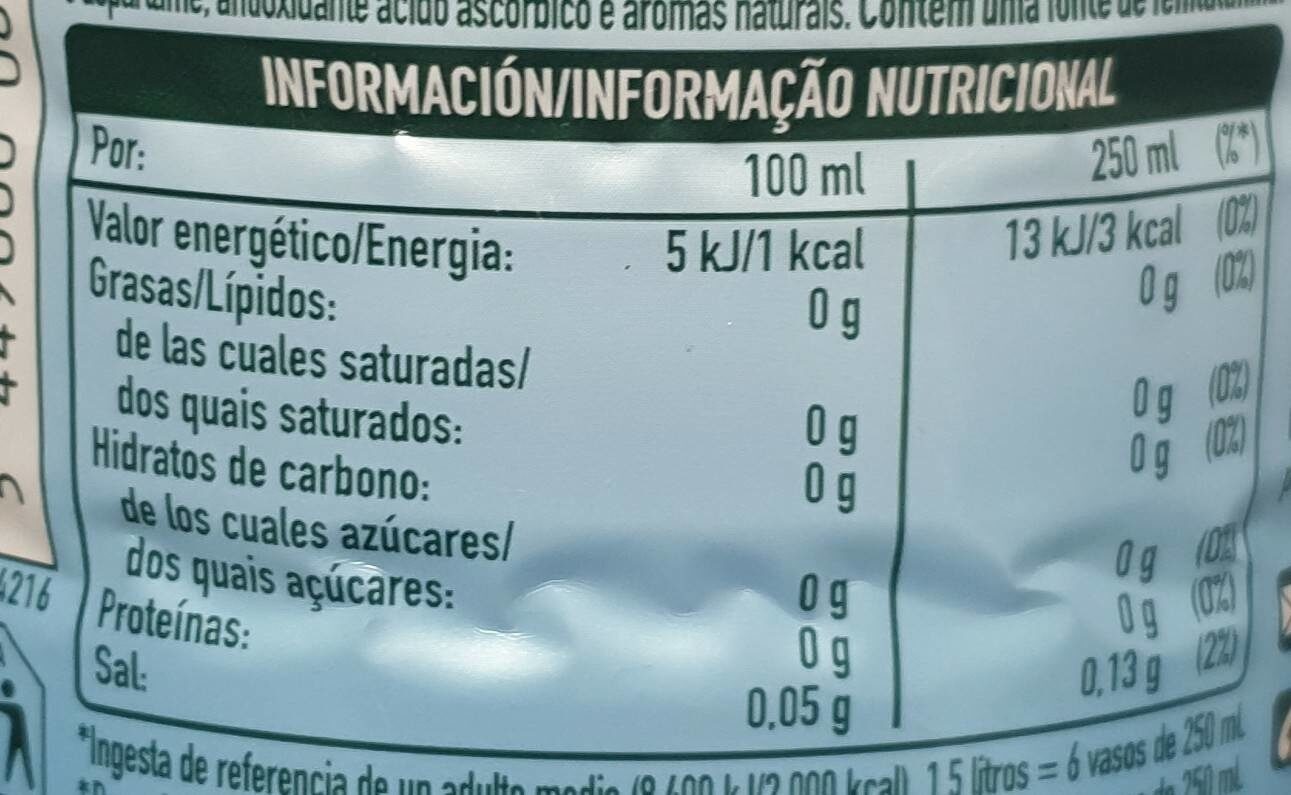Nestea sin azucar - 2,5 litros
This product page is not complete. You can help to complete it by editing it and adding more data from the photos we have, or by taking more photos using the app for Android or iPhone/iPad. Thank you!
×
Barra-kodea: 5449000088550 (EAN / EAN-13)
Kopurua: 2,5 litros
Markak: Nestea
Kategoriak: en:Beverages, en:Artificially sweetened beverages, en:Tea-based beverages, en:Iced teas
Etiketak, ziurtagiriak, sariak: en:Low or no sugar, en:Contains a source of phenylalanine, No sugar
Dendak: Consum
Matching with your preferences
Ingurumena
Carbon footprint
Ontziratzea
Transportation
Report a problem
Datuen iturria
Product added on by kiliweb
Last edit of product page on by 5m4u9.
Produktuaren orria -gatik editatua djtzaba, ecoscore-impact-estimator, elfarto, muldev, musarana, openfoodfacts-contributors, org-app-elcoco, scanbot, tacite-mass-editor, thaialagata, yuka.SHZBYUNQd2JnZG94eGNaaHB6M3F3OVY1OTcyUVVtQ1hMdllUSVE9PQ, yuka.UlBvNkVLUVp2T0FYdHZOZzRDejM4TU5GbTZPTlZseVNJc1VXSWc9PQ, yuka.V1pJRUVJUVp0S00zbVBBWG8wbksydGxsenJuMGRFRzFkZE5LSUE9PQ, yuka.ZWFFQk5iZ2N0K2NJdFBJVS9VamM0OVJ5K1lieWVVaXlCOVZLSVE9PQ, yuka.sY2b0xO6T85zoF3NwEKvlkllWYvmiGLtOAPUxFO5w_6IFsSyeuNj27rFPag, yuka.sY2b0xO6T85zoF3NwEKvlkpVacjsoCDPHkbfqByX58uxK7XSPfAo-o7lKag, yuka.sY2b0xO6T85zoF3NwEKvlm54b8Du_CzoHBvlgk-rwImOJcbKXMlV5Ln8Y6s.









